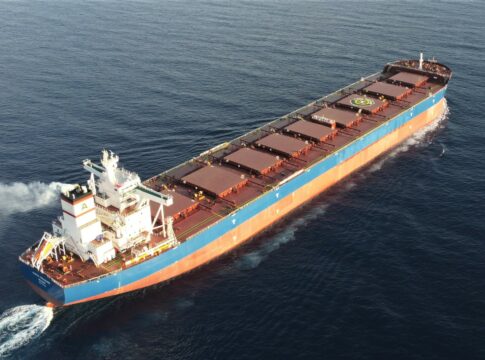Minister of Maritime Affairs and Insular Policy, Christos Stylianidis, referred to the challenges for enhancing the safety and efficiency of shipping during the World Maritime Day.
“On the occasion of World Maritime Day 2024, I am addressing today, with particular honor and pride, every member of the great, Greek maritime community. As every year, this year as well, the last week of September is dedicated to the celebration of World Maritime Day. Its celebration was established in 1978 by the International Maritime Organization (IMO), with the aim of recalling its great work in upgrading shipping, safety and security at sea, the protection of the marine environment, training of seafarers and the working and living conditions on ships,” Stylianidis noted.
“It has always been known that the path to improving navigational safety was, and continues to be, based on the adoption of effective international rules and regulations that are followed by all maritime states worldwide. The IMO is the Organization that provides the mechanism through which maritime states are able to cooperate and decide on the standards to be applied to ships operating on international voyages,” he added.
The minister emphasized that “shipping carries approximately 80% of world trade, being the least harmful means of transport for the environment, taking into account its productive value. Actively participating in a global effort to decarbonize shipping, IMO is helping to further enhance the energy efficiency of ships and reduce greenhouse gas (GHG) emissions through regulations, while providing technical cooperation and capacity building activities for supporting the implementation of these regulations by the Member States.”
But safety should be the first priority, he underlined, noting that “one of the initiatives of the IMO to reduce greenhouse gas emissions, of particular interest to our country, is the development of a regulatory framework for the safe reduction of greenhouse gas emissions from ships.”
“Successful implementation of an ambitious and accelerated policy to reduce greenhouse gas emissions undoubtedly requires the assessment of the relevant risks to the safety of ships and the establishment of the necessary international safety regulations. The focus is on enhancing the safety and efficiency of shipping, in the context of the continuous and safe flow of international maritime trade. In this light, the Maritime Safety Committee, at its 107th session (MSC 107) in June 2023, approved a new thematic unit (output) aimed at developing a regulatory framework for the safe reduction of greenhouse gas emissions from ships using alternative fuels and new technologies. In this regard, a Working Group was established during the 108th Session of the Maritime Safety Committee (MSC 108), the Presidency of which is held by our country until 2025,” he said.
According to Stylianidis, “the rapid development of an international regulatory framework for the safe reduction of greenhouse gas emissions from ships is now necessary.”
“In this context, it is also a challenge for all global shipping operators to be able to provide and use alternative fuels safely, to reduce greenhouse gas emissions and to combat climate change. “With these thoughts, I invite you to celebrate this year’s World Maritime Day and to continue to promote dialogue and knowledge sharing to further strengthen maritime safety, for a safer and more sustainable future for shipping, taking maritime transport one step further,” he concluded.













